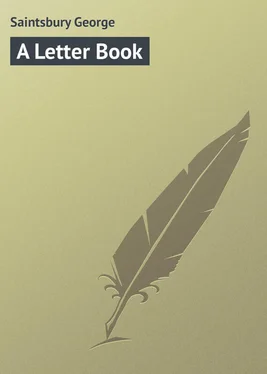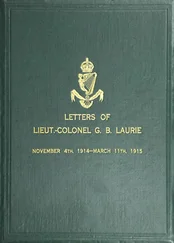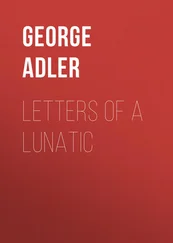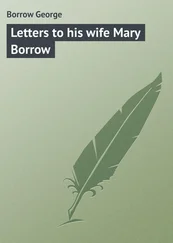George Saintsbury - A Letter Book
Здесь есть возможность читать онлайн «George Saintsbury - A Letter Book» — ознакомительный отрывок электронной книги совершенно бесплатно, а после прочтения отрывка купить полную версию. В некоторых случаях можно слушать аудио, скачать через торрент в формате fb2 и присутствует краткое содержание. ISBN: , Жанр: foreign_language, foreign_prose, на английском языке. Описание произведения, (предисловие) а так же отзывы посетителей доступны на портале библиотеки ЛибКат.
- Название:A Letter Book
- Автор:
- Жанр:
- Год:неизвестен
- ISBN:http://www.gutenberg.org/ebooks/31072
- Рейтинг книги:3 / 5. Голосов: 1
-
Избранное:Добавить в избранное
- Отзывы:
-
Ваша оценка:
- 60
- 1
- 2
- 3
- 4
- 5
A Letter Book: краткое содержание, описание и аннотация
Предлагаем к чтению аннотацию, описание, краткое содержание или предисловие (зависит от того, что написал сам автор книги «A Letter Book»). Если вы не нашли необходимую информацию о книге — напишите в комментариях, мы постараемся отыскать её.
A Letter Book — читать онлайн ознакомительный отрывок
Ниже представлен текст книги, разбитый по страницам. Система сохранения места последней прочитанной страницы, позволяет с удобством читать онлайн бесплатно книгу «A Letter Book», без необходимости каждый раз заново искать на чём Вы остановились. Поставьте закладку, и сможете в любой момент перейти на страницу, на которой закончили чтение.
Интервал:
Закладка:
If, however, anyone insists on a formal and more or less complete presentation, already existing, of nineteenth century "Letters" in a body by a single writer, the palm must probably be given to those (already referred to) of the translator or paraphrast of Omar Khayyàm. Besides their great intrinsic interest and peculiar idiosyncrasy, they have, for anyone studying the subject as we are endeavouring to do, a curious attraction of comparison. Letter-writing, though by no means exclusively, would appear to be specially and peculiarly the forte of men who live somewhat special and peculiar lives – men without the ordinary family ties of wife and children – sometimes though by no means always, recluses; possibly to some extent "originals," "humourists," "eccentrics," as they have been called at different times and from different points of view. Even Walpole, fond as he was of society, belongs to the class after a fashion, as do also Chesterfield 36 36 Chesterfield's deafness might, without frivolity, be brought in. It is a hindrance to conversation, but none to letter-writing.
and Lady Mary, while Gray, Cowper, and at a later period Lamb, are eminently of it. But hardly anyone so unquestionably comes under the classification as Edward FitzGerald. He certainly was for a time married, but that marriage as certainly was not made in Heaven, if it was not conspicuously of the other origin: and actual cohabitation lasted but a short time. He had no children, and though he frequently foregathered with the family from which he sprang, he was essentially a "solitary." Such solitaries, even if they do not ticket and advertise themselves as such after the fashion of Rousseau and Senancour and the author of Jacopo Ortis , naturally enough find in letters the outlet for communication with their fellows 37 37 Or at least expression of themselves.
which others find in conversation, and the occupation which those others have ready-made, in society, business of all kinds etc. That some copious and excellent letter-writers, such as for instance Southey, have been extremely busy, and "family men" of the most unblemished character, merely shows that the rule is not universal. But it may be observed that their letters usually have less intense idiosyncrasy than those of the others.
Of such idiosyncrasy, both in letters and in other work, few men have had more than the author of Euphranor and (as we have had to say before) the "translator or paraphrast" not merely of Persian but of Spanish and Greek masterpieces. It is indeed notorious that it was in this latter capacity that he showed the individuality of his genius most strongly. It is a frequently but perhaps idly 38 38 Idly: because he himself expressly and repeatedly disclaims mere "translation."
disputed question how much is Omar and how much FitzGerald, while the problem might certainly be extended by asking how much is Aeschylus and how much Calderon in his versions of those masters: but it does not concern us here. What does concern us is the fact that he has contrived to make his most famous exercise in translation signally, and the others to some extent, not dead "versions," but as it were reincarnations of the original, the spirit or the flesh (whichever anyone pleases) being his own, or both being blended of his and the author's. To do this requires a "strong nativity" though not in the equivocal sense in which another great translator of FitzGerald's own type 39 39 Dryden, in reference to Shadwell.
used that term. It shows in his scanty "original" work: but it shows also and perhaps more strongly in his letters. Everyone who has studied the history of the English Universities in connection with that of English literature knows, even if he has not been fortunate enough to experience it, the remarkable fashion in which, at certain times, colleges and coteries at Oxford and Cambridge have seemed to throw a strange and almost magical influence over a generation (hardly more) of undergraduates. There was unmistakably such an aura or atmosphere about in Trinity College, Cambridge, during the last of the twenties and the first of the thirties of the nineteenth century – a spirit of literature and humour, of seriousness and jest, of prose sense and half mystical poetry – which produced things as diverse as The Dying Swan and Clarke's Library of Useless Knowledge , Vanity Fair and the English Rubaiyàt .
Of this curiously blended mood-combination – of which in their different ways Tennyson and Thackeray, as universally known, Brookfield, W. B. Donne, G. S. Venables, as less known, but noteworthy instances suggest themselves as examples – FitzGerald was certainly not the least remarkable. He had, as eccentrics usually and almost necessarily have, not a few limitations, some of which possibly were, though others certainly were not, deliberately assumed or accepted. He would not allow that Tennyson had ever in his later work (not latest by any means) done anything so good as his earlier. In that unlucky though quite blameless observation on Mrs. Browning which was referred to above, he ignored or showed himself unable to appreciate the fact that the poetess had never done anything better than, if anything so good as, some of her very latest work. 40 40 "The Great God Pan" piece ("A Musical Instrument"), one of the last, was perhaps her very best. But he may have been thinking of Poems before Congress , which are poor enough.
It cannot be considered an entirely adequate cause for ceasing to live with your wife, 41 41 Lucy, daughter of that curious Quaker banker's clerk Bernard Barton, whose poetry is negligible, but who must have had some strong personal attraction. For he was a favourite correspondent of two of the greatest of contemporary letter-writers, Lamb and FitzGerald, though he constantly misunderstood their letters; he received from Byron – on an occasion likely to provoke one of the "noble poet's" outbursts of pseudo-aristocratic insolence – a singularly wise and kindly answer; and having as a perfect stranger lectured Sir Robert Peel he was – invited to dinner!
that her dresses rustle; and many other instances of what may be called practical and literary non-sequiturs might be alleged against him. But all these "queernesses" are evidence of a temperament and a mode of thinking which are likely to produce very satisfactory letters. They are sure not to be dull: and when the queerness is accompanied by such literary power as "Fitz" possessed they are not likely to be merely silly, as some things are which attempt not to be dull. As a matter of fact they are delightful: and their variety is astonishing. Odd stories and odd experiences seem, despite his almost claustral life, to have had a habit of flying to FitzGerald like filings to a magnet – as for instance the irresistible anecdote of the parish clerk who insisted on giving out for singing casual remarks of the parson above him as if they were verses of a hymn, and who was duly echoed by the congregation. Even when he does not make you laugh he satisfies you: even when you do not agree with him you are obliged to him for having expressed his heresy.
One of FitzGerald's special correspondents was, for reasons then imperative, not a member of the Cambridge group itself, but as closely connected with it as possible: being the sister of one of its actual members. John M. Kemble, one of our earliest and best Anglo-Saxon scholars in modern times, was, like others of his famous family (so far as is generally known) a person of varied talents, though he showed these neither in letter writing nor in the direction which Tennyson incorrectly augured in the "Sonnet to J. M. K." His sister Frances (invariably, like most though by no means all ladies of her name, called "Fanny" 42 42 Some have attempted to make a distinction, alleging that there are Franceses who can be called "Fanny" and others who can not. But it is doubtful whether this holds. Of two great proficients of "letter-stuff" in overlapping generations Fanny Burney was eminently a "Fanny." Fanny Kemble, though always called so, was not.
) was a very remarkable person indeed. After taking early and with brilliant success to the stage which might almost be said to be hers by inheritance, 43 43 She was the niece of Mrs. Siddons and of John Kemble, generally considered the greatest tragic actor and actress we have had; the daughter of Charles Kemble, a player and manager of long practice and great ability; while she had yet another uncle and any number of more distant relations in the profession.
she married an American planter with even worse results (they were actually divorced) than her friend FitzGerald's marriage brought about later: and for many years returned to public life, not as an actress but as a reader. She wrote and published both prose and verse of various kinds: but her best known work and that which places her here, is a voluminous series of "Records," etc., much of which is composed of actual letters, while practically the whole of it is what we have called "letter-stuff." It has perhaps been published too voluminously: and it is certain that, as indeed one might expect, its parts are not equal in interest. But experienced and balanced judgment must always sum up in her favour as possessing, in letter- and even other writing, more than ordinary talent, perhaps never quite happily or fully developed. Merely as a person she seems to have exercised an extraordinary attraction without being exactly amiable 44 44 See Prefatory Note on her letters infra , for an illustration of what is said of her here and of Mrs. Carlyle a little further.
: and from the intellectual and artistic sides as a writer (we have nothing here to do with her histrionic powers) to have been what has sometimes in others been called "inorganic," "ill-regulated," "not brought off," etc., but of extraordinary capacity.
Интервал:
Закладка:
Похожие книги на «A Letter Book»
Представляем Вашему вниманию похожие книги на «A Letter Book» списком для выбора. Мы отобрали схожую по названию и смыслу литературу в надежде предоставить читателям больше вариантов отыскать новые, интересные, ещё непрочитанные произведения.
Обсуждение, отзывы о книге «A Letter Book» и просто собственные мнения читателей. Оставьте ваши комментарии, напишите, что Вы думаете о произведении, его смысле или главных героях. Укажите что конкретно понравилось, а что нет, и почему Вы так считаете.












